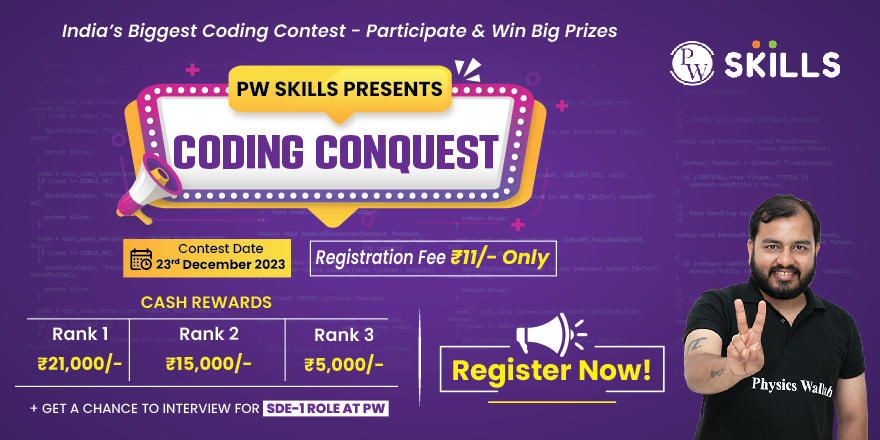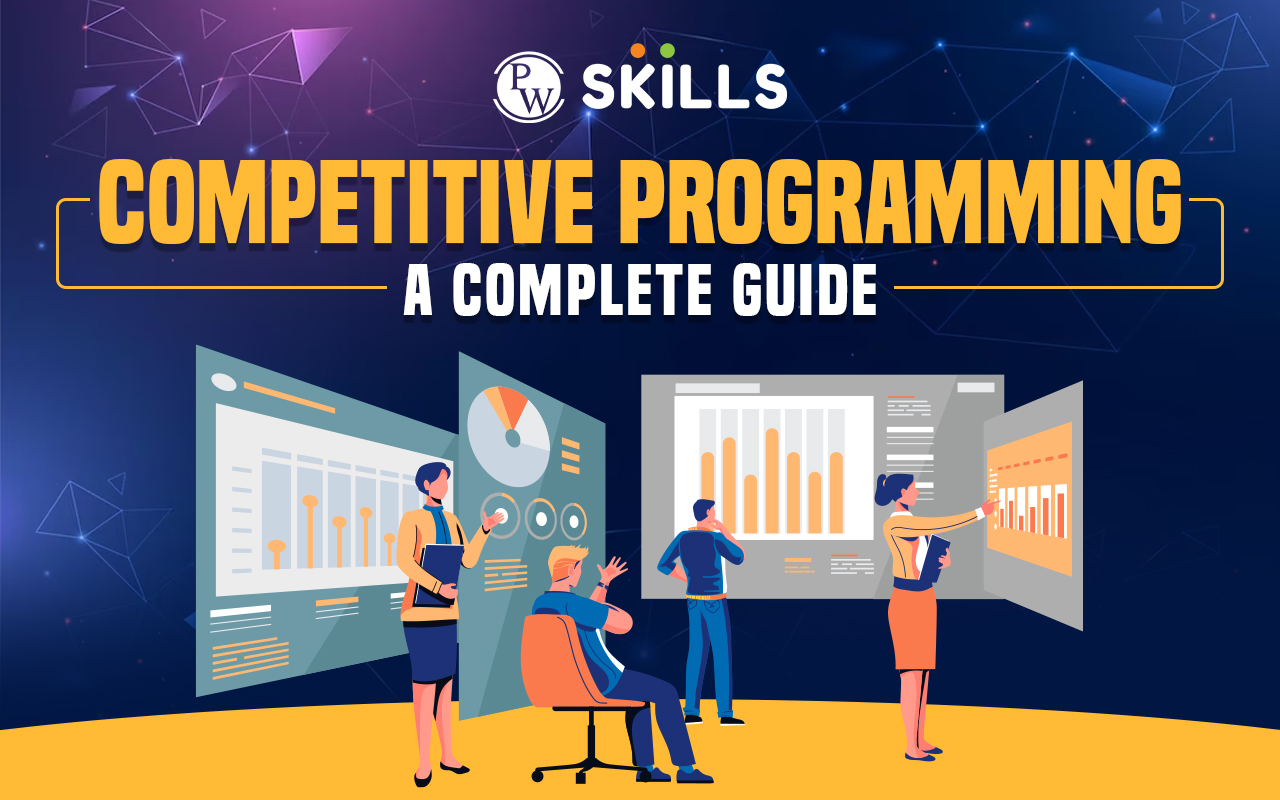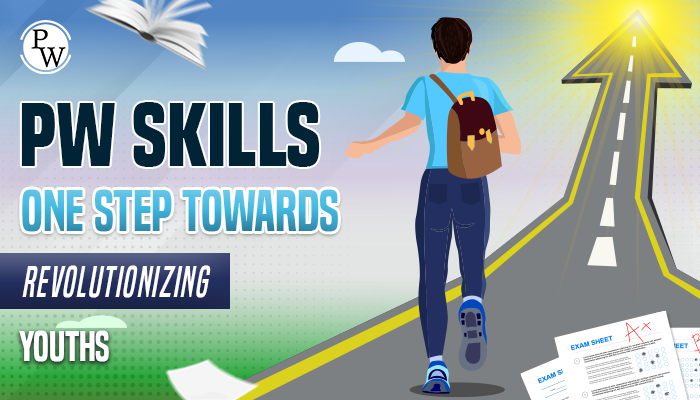Competitive coding programming helps in profound knowledge of algorithms and data structures and logical thinking prowess to tackle problems efficiently. These programming contests serve as a platform to assess one’s skills and offer a valuable opportunity.
Competitive Coding: Competitive coding programming, it teaches you how to think? As a programmer, you likely resonate with the profound meaning behind these lines attributed to Steve Jobs. It’s an experience familiar to many in the coding realm – the lingering thoughts about programming tasks and code even after shutting down the computer.
Engaging in programming goes beyond learning to code; it involves mastering the “art of thinking.” This entails breaking down code into manageable components and applying logical and creative thinking to solve problems from various perspectives. Programming is not just a skill; it’s an enjoyable endeavor, an exercise for your brain, and akin to a mental sport.
When this cognitive sport occurs on the internet, featuring sports programmers as contestants, it is aptly termed Competitive Programming. It transforms coding into a challenging and strategic activity, pushing participants to showcase their problem-solving prowess in the digital arena.
Engage in competitive coding challenges and contests to apply theoretical knowledge in practical scenarios. Practice is a crucial aspect of mastering Java and DSA. Decode Java+DSA 1.0 by PW is the ideal course to start learning competitive coding of Java. By applying “READER” coupon when enrolling for course helps you to save some money.

What is Competitive Coding?
Competitive coding, or competitive programming, is a sport-like mental exercise where participants, often called sports programmers or competitive coders, solve algorithmic and computational problems within a specified time frame. The primary objective is to write efficient and correct code to solve challenging problems.
Strict time constraints characterize competitive coding. Participants typically have a limited time (ranging from a few minutes to a few hours) to solve each problem. Solutions are not only judged on correctness but also efficiency. Programmers are encouraged to develop optimized algorithms and code to solve problems within time limits.
Competitive coding provides a platform for programmers to challenge themselves, improve their coding skills, and join a global community of like-minded individuals passionate about algorithmic problem-solving.
Recommended Technical Course
- Full Stack Web Development Course
- Generative AI Course
- DSA C++ Course
- Java+DSA 1.0 Course
- Data Analytics Course
- Data Science with ML 1.0 Course
Competitive Coding Examples
Here are some competitive coding examples:
1) Problem: Fibonacci Sequence
- Description: Write a function to find the nth number in the Fibonacci sequence.
- Constraints: 0≤�≤450≤n≤45
- Example Input/Output:
- Input: 6 Output: 8
2) Problem: Two Sum
- Description: Given an array of integers, find two numbers that add up to a specific target number.
- Constraints: The solution should have exactly one solution, and you might not use the same element twice.
- Example Input/Output:
- Input: [2, 7, 11, 15], target = 9 Output: [2, 7]
3) Problem: Maximum Subarray
- Description: Find the contiguous subarray with the largest sum.
- Constraints: The array can contain both positive and negative numbers.
- Example Input/Output:
- Input: [-2, 1, -3, 4, -1, 2, 1, -5, 4] Output: 6 (subarray [4, -1, 2, 1] has the largest sum)
4) Problem: Binary Search
- Description: Execute a binary search algorithm to discover the index of a target element in a sorted array.
- Constraints: Assume that the input array is sorted in ascending order.
- Example Input/Output:
- Input: [1, 2, 3, 4, 5], target = 3 Output: 2
5) Problem: Parenthesis Matching
- Description: Given a string containing just the characters ‘(, ”),’ ‘{, ”},’ ‘[‘ and ‘],’ determine if the input string is valid.
- Constraints: The string must be a valid combination of parenthesis.
- Example Input/Output:
- Input: “{[]}” Output: true
Also read: Top 15 Competitive Coding Questions With Solutions, PDF
Competitive Coding Questions and Problems
Here are a few competitive coding questions across different difficulty levels:
Easy:
Two Sum:
- Given an array of integers, return indices of the two numbers such that they add up to a specific target.
Palindrome Check:
- Determine whether an integer is a palindrome. An integer is a palindrome when it reads the same backward as forward.
Medium:
Longest Increasing Subsequence:
- Given an unsorted array of integers, find the length of the longest increasing subsequence.
Merge Intervals:
- Given a collection of intervals, merge any overlapping intervals.
Hard:
Trapping Rain Water:
- Given n non-negative integers representing an elevation map where the width of each bar is 1, compute how much water it can trap after rain.
Maximum Subarray Sum Circular:
- Given a circular array C of integers, find the maximum possible sum of a non-empty subarray of C.
Dynamic Programming:
Knapsack Problem:
- Given weights and values of n items, put these items in a knapsack of a fixed capacity to get the maximum total value in the knapsack.
Longest Common Subsequence:
- Given two strings, find the length of the longest subsequence present in both of them.
Graph Theory:
Dijkstra’s Shortest Path:
- Implement Dijkstra’s algorithm to find the shortest path in a weighted graph.
Topological Sort:
- Given a directed acyclic graph, perform a topological sort on its vertices.
Competitive Coding Websites
Here are some popular websites for competitive coding where you can practice and participate in coding challenges:
| Competitive Coding Websites | |
| Website | Description |
| Codeforces | Competitive programming platform with regular contests. |
| LeetCode | Platform for practicing coding problems and preparing for interviews. |
| HackerRank | Offers coding challenges in various domains, including algorithms and data structures. |
| CodeChef | Indian-based competitive programming platform with monthly contests. |
| TopCoder | One of the oldest platforms with algorithmic and marathon matches. |
| AtCoder | Japanese competitive programming platform hosting regular contests. |
| Spoj | Sphere Online Judge with a vast collection of algorithmic problems. |
| HackerEarth | Offers coding challenges, hackathons, and practice problems across various domains. |
| Kaggle | Data science platform that features algorithmic challenges and coding competitions. |
| GeeksforGeeks | Resource hub for computer science concepts, algorithms, and coding practice. |
Competitive Coding Courses
Physics Wallah presents the C++ with DSA Course for aspiring game developers and programming enthusiasts. This course aims to provide comprehensive insights into game development using the powerful C++ programming language.
Gain skills that are directly applicable to the game development industry. The curriculum is structured to align with industry standards and practices. Engage in interactive learning modules, discussions, and live coding sessions. The course encourages active participation and fosters a collaborative learning environment.
Decode Java+DSA 1.0 is a comprehensive course Physics Wallah offers, focusing on Java programming and Data Structures and algorithms (DSA). This course is designed for students and programming enthusiasts seeking a solid foundation in Java and proficiency in solving algorithmic problems.
Also read: Top 10 Online Coding Competitions in 2024?
How to Prepare for Competitive Coding?
Here are some steps for a competitive coding:
Step 1: Select a Programming Language:
Choose a programming language that aligns with your comfort level and learn its syntax. Options include C, C++, Java, Python, or any programming language you choose. C++, C, and Java are often preferred for their speed and versatility in coding challenges and interviews. Python is beginner-friendly due to its easy syntax. Your choice depends on your comfort level, and Python is a good starting point for beginners.
Step 2: Grasp Time and Space Complexity Concepts:
Understanding time and space complexity is crucial. Multiple solutions may exist for a problem, but the best one, i.e., an optimal solution, is determined by how efficiently an algorithm uses time and space. Familiarize yourself with these concepts to craft optimal problem-solving algorithms.
Step 3: Learn the Fundamentals of Data Structures and Algorithms (DSA):
DSA forms the core of programming, making it indispensable in competitive programming. Gain proficiency in fundamental data structures and algorithms, such as arrays, linked lists, stacks, queues, trees, tries, graphs, sorting, recursion, and dynamic programming. It is essential to know when and where to apply them; selecting the right data structure for a specific problem is crucial for optimal solutions.
Step 4: Challenge Yourself with Coding Problems:
Participate in coding challenges on different platforms. Before entering contests, practice independently to sharpen your skills. Facing challenges head-on is essential for growth. Participating in coding competitions exposes you to diverse problems, enhancing your problem-solving abilities.
Step 5: Regular Practice is Key:
Patience, dedication, and consistency are paramount in becoming a proficient competitive programmer. Practice coding questions daily on various platforms. Utilize a whiteboard for problem-solving or take part in coding competitions. Regularity is crucial; avoid breaks once you start.
Persevering through complex problems and participating in coding competitions provide valuable learning experiences. Consistent practice hones your coding skills, transforms you into an adept problem solver, and helps you identify suitable data structures for specific problems—a valuable asset in software development.
Also read: 13 Java Coding Games Will Help You Master Java in 2024
Benefits of Practicing Competitive Programming
Participating in competitive programming offers a range of benefits, contributing to the growth and proficiency of programmers. Here are some advantages:
1) Problem-Solving Skills:
Competitive programming presents diverse and challenging problems that require innovative solutions. Regular exposure to various problem types enhances your ability to approach problems systematically and find optimal solutions.
2) Community and Networking:
Engaging in competitive programming introduces you to a global community of like-minded individuals. Networking with fellow programmers, sharing insights, and participating in discussions contribute to your growth and exposure to diverse perspectives.
3) Career Opportunities:
Proficiency in competitive programming can open up various career opportunities. Many tech companies value competitive programming skills when hiring, recognizing the ability to solve complex problems efficiently.
4) Algorithmic Thinking:
Developing efficient algorithms is a crucial aspect of competitive programming. It encourages you to think algorithmically, finding the most effective way to solve a problem within specified constraints.
5) Time Management:
Coding competitions often have time constraints. Managing your time effectively during contests enhances your ability to prioritize tasks and allocate time wisely—a valuable skill in various aspects of life.
6) Learning New Concepts:
Competitive programming exposes you to many problems, requiring you to explore and understand new concepts and algorithms. It provides a continuous learning environment, helping you stay updated on the latest developments in computer science.
7) Coding Efficiency:
Competing in coding challenges improves your coding efficiency. You learn to write clean, concise, optimized code within limited time constraints, fostering good coding practices.
8) Interview Preparation:
Many competitive programming problems mirror real-world challenges encountered in technical interviews. Regular participation in coding competitions is excellent preparation for technical discussions, enhancing your problem-solving skills and boosting confidence.
9) Boosts Confidence:
Successfully solving complex problems within stipulated time frames boosts your confidence. Overcoming challenges in competitive programming reinforces a positive mindset, making you more resilient in complex tasks.
10) Enhances Logical and Analytical Thinking:
Competitive programming hones logical and analytical thinking skills. Analyzing problems, breaking them into smaller components, and devising efficient solutions contribute to developing a structured and analytical mindset.
Tips for Improving Speed in Competitive Coding Programming Contests
- Entering the realm of competitive programming as a beginner may initially feel akin to presenting an IIT-level paper to a 5th or 6th-grade student and expecting them to answer the questions. It’s normal to grapple with coding problems even after acquiring knowledge of syntax, loops, functions, and other fundamentals. This phase is part of the learning journey for every newcomer.
- On coding platforms, the number of submissions often indicates the difficulty level of a problem—the more submissions, the easier the problem. Utilize this information to sort and select issues based on your current skill level.
- Building a community of like-minded individuals with diverse skill sets can be immensely beneficial. Learning from others and collaborating can enhance your understanding. If you’re in college, consider forming a team and participating in ACM ICPC, a renowned competitive programming contest.
- Tools like the Code Buff application can streamline your competitive programming experience by providing notifications about coding contests across various platforms and allowing you to set reminders.
- To transition into competitive programming, adopt a project-based learning approach. After mastering language syntax and fundamentals, create challenging projects to understand how logic functions in real-world development.
- This practical experience will bolster your programming abilities and make tackling competitive programming questions more manageable.
- Ensure a strong grasp of efficient algorithms and data structures, including sorting algorithms, dynamic programming, and graph algorithms.
- Use keyboard shortcuts to optimize your coding efficiency, covering actions like copying, pasting, commenting, and navigating between tabs.
- Writing clean and concise code is crucial for readability and effective debugging. Developing the skill to debug quickly is essential in competitive programming.
- Efficient debugging ensures you can identify and rectify errors promptly, allowing you to move on to the next problem.
- Participating in coding contests is a crucial strategy for improvement. These contests replicate real-world programming challenges, helping you enhance your speed, accuracy, and problem-solving skills under time constraints.
Also read: Unlocking the World of Competitive Programming
FAQs
What is competitive coding?
Competitive coding is a mind sport that involves solving well-defined algorithmic and computational problems within a specified time limit. It is a competitive arena where individuals showcase their programming skills by solving problems efficiently and optimally.
How do I get started with competitive coding?
To start with competitive coding, you must choose a programming language, understand the basics of time and space complexity, learn data structures and algorithms, and regularly practice solving coding problems on platforms like Codeforces, LeetCode, or HackerRank.
Are there specific strategies for competitive coding?
Yes, strategies include:
Understanding the problem thoroughly.
Breaking it into smaller subproblems.
Choosing the right data structures.
Optimizing time and space complexity.
Practicing regularly.
Also, learn to use keyboard shortcuts and write clean, concise code.
What is the significance of participating in coding contests?
Coding contests simulate real-world programming challenges, helping you practice problem-solving under time constraints. They enhance your speed, accuracy, and ability to tackle diverse problems, improving overall skill.
How can I find coding communities and like-minded individuals?
Join online coding platforms, forums, or social media groups related to competitive programming. Participate in coding communities, engage in discussions, and collaborate with others to exchange knowledge and enhance your coding skills.




